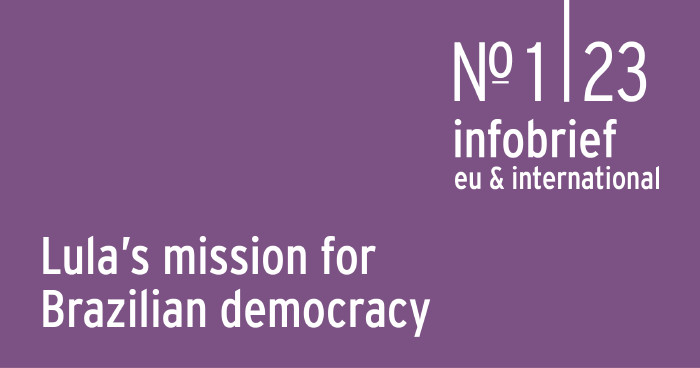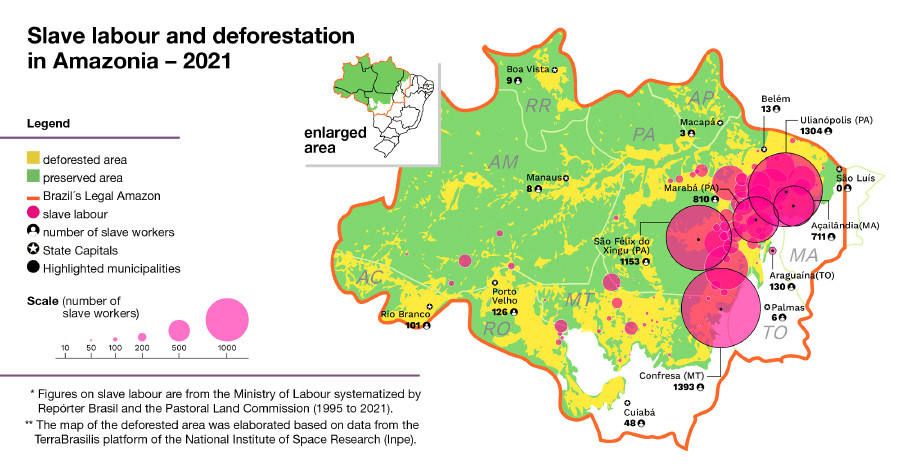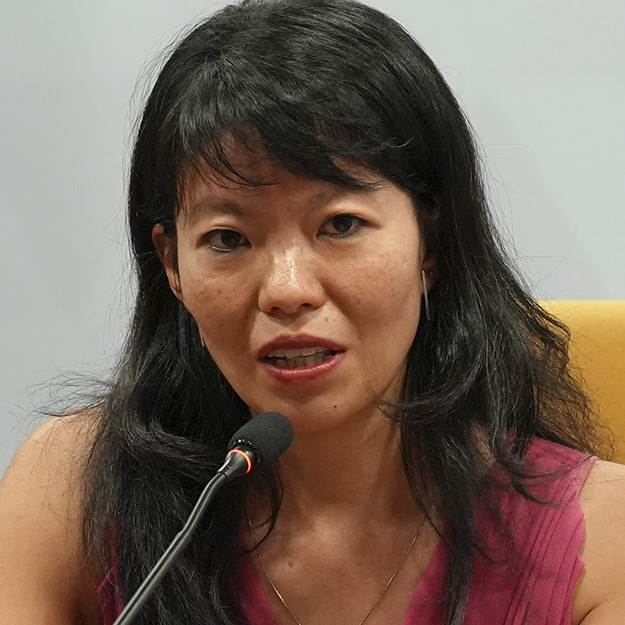
Lula’s mission for Brazilian democracy: What is to be done after the socio-environmental and political destruction caused by the Bolsonaro administration?
Jair Bolsonaro allowed and encouraged usurpation of the Amazon’s environmental resources and decimation of traditional peoples. Therefore, the Lula administration will have to be quick to reconstruct the country’s social fabric, socio-environmental and labour standards, and political structure in order to preserve democracy.
Author: Natalia Suzuki
Diesen Artikel downloadenBolsonaro´s pernicious legacy
Thousands of hectares have been burned in the Amazon. Rivers were contaminated with mercury. Soil suffered with silting. In that period, an area the size of Belgium was destroyed in one of the largest megadiverse forests on the planet. The rate of illegal deforestation has increased by 73% in the region over the past four years – 138% in indigenous lands.
This environmental calamity had an impact on the lives of indigenous communities, causing one of the worst humanitarian crises in the Amazon in recent decades. Prevented from living according to their traditional ways, they die of malnutrition, especially Yanomami children and elders.
Such socio-environmental deterioration is just one of the many symptoms of the dismantling of the country’s democratic structures, which were attacked by Bolsonaro.

The former administration not only allowed and ignored illegal activities in the Amazon. It also encouraged and legitimized those crimes. They annulled environmental laws, undermined the structures of enforcement agencies by cutting funds and staff from them, and dismissed public servants who resisted their demands and abuse. Former Environment Minister Ricardo Salles is under investigation for facilitating exports of illegal timber from the Amazon to Europe and the United States.
“I want to mine there. I’ve done it before. (...) You can count on me, I want to open it to mining activities,” said Bolsonaro about mining in Serra Pelada, Pará state, an area invaded in the 1980s by thousands of miners and where many died because of degrading working conditions.
Previously organised coup attempt
On January 8, more than 8,000 supporters of Brazil’s far-right former President staged an attempted coup d’état. They trashed the buildings of the Executive, Legislative and Judiciary and sent a violent yet clear message: part of Brazilian society wants military intervention and the destruction of the country’s democracy.
When the authorities overcame their perplexity at the event, they realized it had not been a spontaneous demonstration by Bolsonaro voters dissatisfied with Lula’s electoral win. The action had been planned and funded for months.
Documents obtained exclusively by NGO Repórter Brasil show landowners, traders and miners rallying for a military coup, funding Bolsonaro’s electoral campaign, and participating in demonstrations that called on the military to take over the government in the capital Brasília and in their hometowns in southern Pará. They are the political and economic elite in an area with some of Brazil’s highest levels of deforestation, public land grabbing, predatory cattle ranching, and illegal mining, including within indigenous lands.
The region also has the highest concentration of cases of slave labour, which is employed in agricultural activities but also in mining and deforestation. During his term in office, Bolsonaro cut the budget for combating slave labour by 55%. In 2021-2022, human resources and infrastructure to monitor these cases were insufficient, but more than 4,000 workers were still rescued from exploitation in the country.
Protection of the environment, workers and indigenous communities cannot do without democratic structures since socio-environmental rights depend on enforcing the law as well as inspecting and holding criminals accountable, but also on the implementation of social policies that reverse people’s vulnerability. That is the duty of the State.
Outlook
The Lula administration will face a long journey and will have to work hard over the next four years. The President will have to be quick to lift millions of Brazilians out of poverty, improve employability, attract investments, and make the economy grow with fiscal and socio-environmental responsibility. For that, Lula will have to resume dialogue with civil society actors such as trade unions and social movements for policymaking and decision-making. Above all, the current government will have to recompose the social fabric that has been torn apart by the country’s political, ideological and socioeconomic division.
Bolsonaro has left a legacy of destruction and many heirs to its violent ideology. The current administration faces the hard and challenging task of curbing them with the full rigour of the law to preserve democracy.
Diesen Artikel downloadenKontakt
Kontakt
Kammer für Arbeiter und Angestellte Wien
Abteilung EU & Internationales
Prinz Eugenstraße 20-22
1040 Wien
Telefon: +43 1 50165-0
- erreichbar mit der Linie D -
